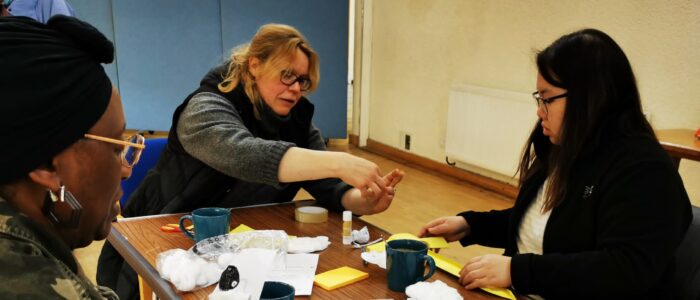Why young people need trusted adults

Young people will experience many different relationships throughout their teenage years; short lived friendships, ones that have been built on trust over a number of years and ones that will continue to grow throughout their adult lives.
However, life in their final years at school, college or sixth form tend to be periods of transition, preparing them for what is next. This can often look like a series of monumental changes which leads them to evaluate the existing relationships that they have as they embark on something new.
At this time, it is paramount that they have at least one strong relationship. This should be someone they trust, somebody who is more experienced and somebody who’s heart is in the right place for them.
Nathan Singleton, author of the award-winning VIP Mentoring programme reflected in a recent blog:
“Many of us feel pretty ill-equipped to be effective in our support of young people with mental health issues, preferring to leave it to the professionals. And it’s vital to seek out professional help at an early stage. But what can we do to support young people who are vulnerable?
I believe there are three key ingredients:
- Care
- Building relationship
- Building trust
There are some top tips to getting started with these in this further blog post.
The point is, that when young people have a trusted adult they can turn to, they have access to social capital – the fabric that allows society to function properly (and therefore needed by us all!). Those who don’t are incredibly vulnerable and far more likely to be impacted by mental health issues…*”
HealthWatch Barking & Dagenham met with 138 students from a local school, college and university with the focus of discussing Mental Health & Wellbeing.
Overall, 60% indicated that the most important people and influence in their lives was their families with guidance and a sense of safety being the main form of support that young people indicated they benefited from.
If they were to talk about their overall wellbeing, thoughts and feelings – 44% said they would seek out help and support from someone they could trust, although being able to trust someone was a difficult barrier to overcome for 17% of them.
We asked about the different ways that they felt they could be supported.
They said:
- Being able to contact advisers or mentors to help with mental health issues and other wellbeing circumstances.
- Participating in organised activities with trained professionals to help them to realise their potential, reduce loneliness and improve their self-esteem and social skills.
- Having trusted peer support to help break down certain stigmas making it easier to be open about how they feel.
- Being able to go along to counselling services whether it’s at a youth centre, college, or school where there is a choice for young people to access it when needed.
- Others wanted to be able to use social media and the internet to encourage and support them to talk about their vulnerabilities in a safe way.
- Others cited the great work their faith groups are doing to break down cultural stigmas around mental health and wellbeing.
Overall it is clear that having someone to speak to about all the different aspects of life is something that is really necessary for young people. Building trust can be hard, but it is down to those who have hearts for young people such as parents, teachers, faith groups and youth leaders to make a way and allow for this opportunity – as it is key for their development into adult life.
* https://www.lifelineprojects.co.uk/media/2019/03/young-people-need-a-trusted-adult/
Richard Vann
Healthwatch Officer
(Healthwatch Barking & Dagenham is delivered by FaithAction, in partnership with LifeLine Projects, on behalf of the London Borough of Barking & Dagenham)


